In the UK, it’s reported that nearly 1 in 6 homes have a gas appliance that is deemed unsafe.
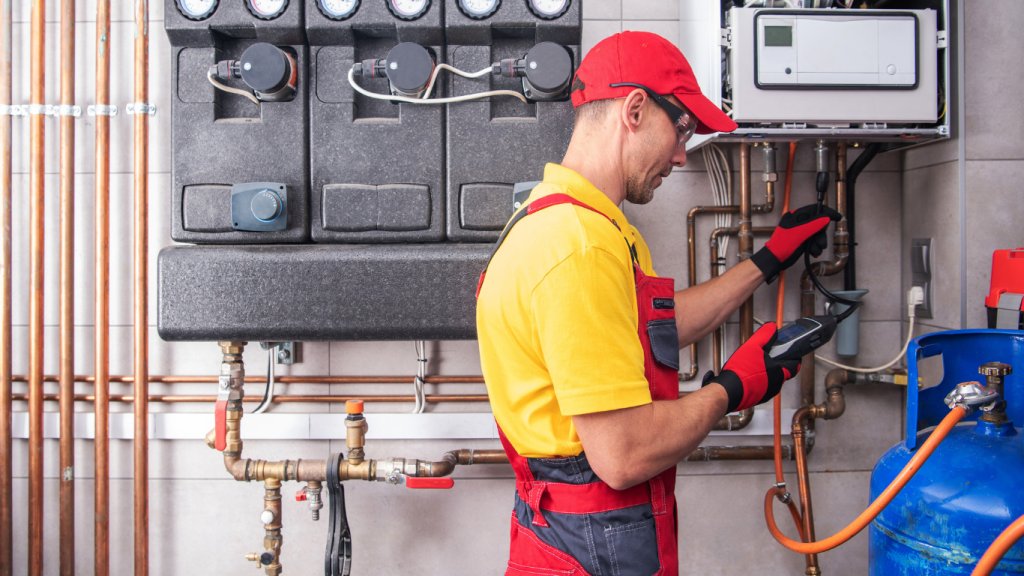
As I ponder the significance of this figure, I realize the urgency of acquiring a Gas Safety Certificate for my own property.
The process may seem challenging, but with the right guidance, it can be navigated smoothly.
Stay tuned to uncover the essential steps and considerations in obtaining this crucial certification, ensuring the safety and well-being of your household.
Understanding Gas Safety Certificates
Understanding the intricacies of Gas Safety Certificates is pivotal for guaranteeing the safe operation of gas appliances in residential and commercial settings. The gas inspection process entails a thorough examination of gas leaks, appliances, chimneys, and flues to confirm safety.
Adhering to gas safety regulations is essential to prevent hazards like gas leaks and carbon monoxide exposure. Regular gas appliance maintenance is vital for longevity and safety, reducing the risk of malfunctions. Following gas safety tips such as proper ventilation and regular checks can help maintain a safe environment.
The validity of a Gas Safety Certificate lasts for a year, emphasizing the need for annual inspections to uphold safety standards and compliance. By staying informed on these aspects, one can ensure the continuous safety and efficiency of gas appliances, promoting a secure living or working environment.
Types of Gas Safety Certificates
Different property types require specific Gas Safety Certificates to guarantee compliance and safety. There are various types of Gas Safety Certificates tailored to different needs.
Homeowner Gas Safety Certificates are suited for individual property owners, ensuring the safety of gas appliances within their homes.
Landlord Gas Safety Certificates are mandatory for property owners renting out accommodations, verifying that gas appliances meet safety regulations.
Commercial Gas Safety Certificates cater to businesses and industrial properties, ensuring compliance with safety standards in commercial settings.
LPG Gas Safety Certificates are specifically designed for properties using Liquefied Petroleum Gas, guaranteeing the safe operation of these systems.
Each type of certificate involves a thorough inspection process focusing on gas appliances, adherence to safety regulations, and compliance standards set forth by regulatory bodies.
It’s important to obtain the appropriate Gas Safety Certificate based on the property type to maintain safety and adhere to legal requirements.
The Need for Gas Safety Certificates
Moving from the discussion on types of Gas Safety Certificates, the necessity for Gas Safety Certificates becomes apparent in various property settings to guarantee compliance and safeguard against potential risks.
Gas safety certificates are essential for ensuring the maintenance of gas appliances, lowering the risks associated with carbon monoxide exposure, and meeting landlord responsibilities. These certificates aren’t only a legal requirement but also an important aspect of gas safety regulations.
They involve a detailed safety inspection checklist, covering aspects like proper gas appliance maintenance, which is important for preventing potential hazards.
Choosing the Right Certificate Provider
When selecting the appropriate gas safety certificate provider, consider the qualifications and registration status of the gas engineers. Provider qualifications are important as they guarantee the competence and expertise required for thorough inspections.
Pricing transparency is also vital; make sure the costs are clear and competitive. Service reliability is paramount to guarantee timely and efficient assessments. Customer reviews offer insights into the provider’s reputation and the quality of their work.
Convenience factors such as booking processes, availability, and additional services can make the experience smoother. Choosing a provider that meets all these criteria is necessary to ensure a thorough and reliable gas safety certificate.
Conducting thorough research and comparisons based on these aspects will lead to selecting the most suitable provider for your gas safety certification needs.
Importance of Regular Gas Safety Checks
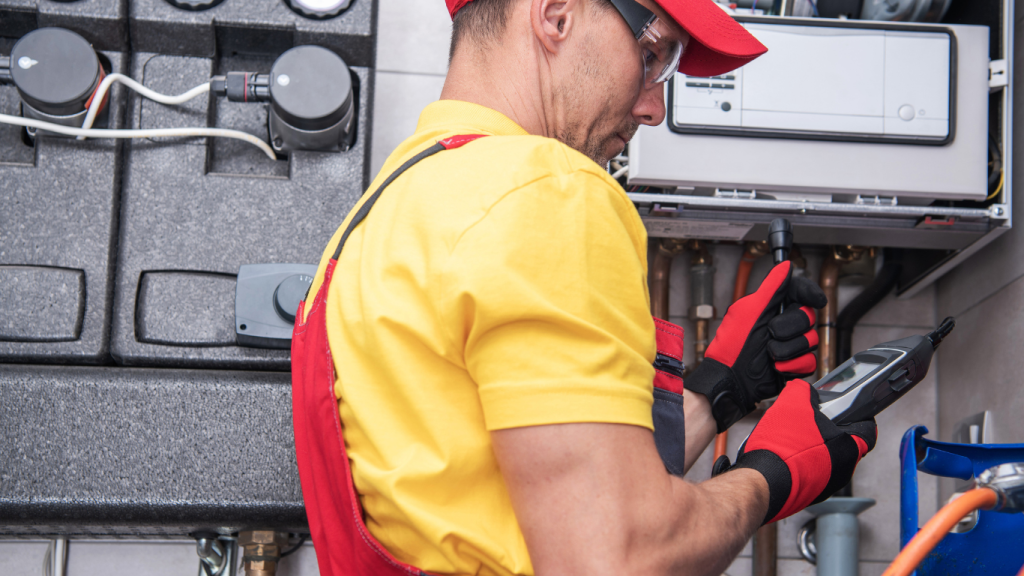
Regular gas safety checks are vital to guarantee the continued safe operation of gas appliances and prevent potential risks associated with gas leaks and carbon monoxide poisoning. Gas appliance maintenance is a key aspect of these checks, ensuring that all components are functioning correctly and efficiently.
By adhering to gas safety regulations and conducting regular inspections, property owners can implement essential safety measures to protect occupants and property from potential hazards. One of the significant benefits of annual inspections is the early detection of any issues, reducing the risk of gas leaks and carbon monoxide risks.
Through these proactive measures, property owners can maintain a safe environment and comply with legal requirements, promoting peace of mind and overall well-being. It’s essential to prioritize regular gas safety checks to uphold the safety and integrity of gas systems within properties while safeguarding against potential dangers.
How to Find Certified Gas Engineers
Where can one efficiently locate certified gas engineers for gas safety checks? When looking for certified gas engineers, it’s essential to confirm they meet specific industry standards and qualifications. Here is a table summarizing key aspects to take into account when searching for a gas engineer:
| Criteria | Details |
|---|---|
| Engineer Qualifications | Check for Gas Safe Registration |
| Certification Process | Verify valid certification documents |
| Industry Standards | Ensure compliance with regulations |
| Safety Regulations | Knowledge of safety protocols |
| Inspection Checklist | Thorough assessment of gas systems |
Finding a certified gas engineer involves confirming their Gas Safe Registration, validating their certification documents, ensuring adherence to industry standards and safety regulations, and checking their inspection checklist thoroughness. By prioritizing these criteria, one can locate reliable and qualified professionals for effective gas safety checks.
Cost-Efficient Ways to Obtain Certificates

To efficiently obtain gas safety certificates while maintaining cost-effectiveness, it’s important to explore affordable options and compare quotes from different Gas Safe engineers. When seeking budget-friendly options, consider comparing costs ranging from £30 to £90 on average. Saving strategies can include looking for inclusive services in the cost, as well as exploring bulk booking discounts.
Affordable solutions may involve consulting companies for cost-saving options and economical choices. Utilizing the Gas Safe Register can also enhance cost efficiency by providing an online database of qualified gas safe engineers. This time and cost-efficient search tool, established in 2009, can save time compared to individual internet searches.
Risks of Skipping Gas Safety Inspections
Skipping gas safety inspections can pose serious risks to both property occupants and the surrounding environment. Neglecting these essential checks increases the likelihood of gas leak dangers, potentially leading to catastrophic outcomes such as explosions or fires.
Carbon monoxide risks also escalate when inspections are skipped, endangering lives due to this colorless, odorless gas. Additionally, legal consequences can be severe, including fines or imprisonment for non-compliance with mandatory inspection regulations.
Property damage is another significant concern, as undetected issues could result in costly repairs or even the loss of the property itself. Overall, skipping gas safety inspections not only jeopardizes the safety of individuals but also poses hazards to the environment and can have long-lasting repercussions.
It’s imperative to prioritize these inspections to guarantee the well-being of both occupants and the property.
Frequently Asked Questions
Are There Any Specific Requirements for Gas Safety Certificates in Commercial Properties Compared to Residential Properties?
In commercial properties, specific gas safety certificate requirements may include more extensive maintenance responsibilities for landlords, stringent inspection processes, compliance with safety regulations, and heightened obligations to guarantee the safety and well-being of occupants.
What Are the Consequences of Not Having a Valid Gas Safety Certificate for Landlords or Property Owners?
Not having a valid Gas Safety Certificate can lead to severe consequences for landlords or property owners. Noncompliance risks legal implications, fines, and endangers lives. Prioritizing safety through certification is essential to avoid these costly and risky outcomes.
Can Gas Safety Certificates Be Transferred Between Different Landlords if the Property Changes Ownership?
Transferring a gas safety certificate between landlords involves legal processes. Landlords must validate proper documentation to uphold tenant rights and comply with safety regulations. It’s essential to follow the transfer process accurately to avoid penalties.
Are There Any Additional Benefits or Services That Some Gas Safety Certificate Providers Offer Beyond the Standard Inspection?
When seeking a Gas Safety Certificate, consider providers offering additional services like appliance maintenance, emergency callouts, carbon monoxide detectors, or gas leak warranties. These value-added options enhance safety and provide peace of mind.
How Can Homeowners Ensure That Gas Safety Checks Are Conducted Properly and Thoroughly by the Gas Engineer?
To guarantee thorough gas safety checks, homeowners must validate the gas engineer’s qualifications, review the inspection checklist, confirm safety protocols, request maintenance tips, and understand emergency procedures. Prioritizing these elements guarantees a full examination.
Conclusion
To sum up, obtaining a Gas Safety Certificate is a vital step in ensuring the safety and compliance of your gas appliances.
By understanding the types of certificates available, selecting a reputable provider, and arranging regular inspections with certified engineers, you can safeguard your property and loved ones from potential risks.
Don’t underestimate the significance of gas safety checks – take proactive measures to protect your household with the necessary certifications in place.



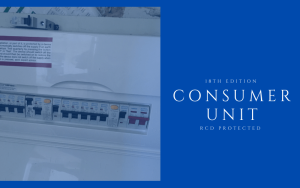


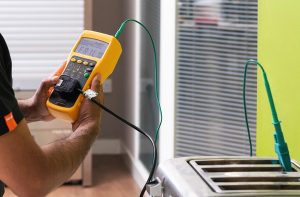
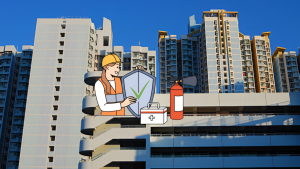
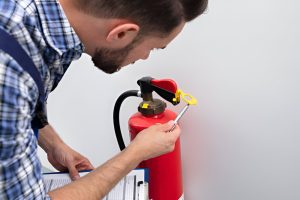
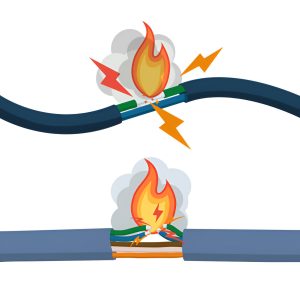

3 thoughts on “How to Get a Gas Safety Certificate”
This is why your blog is my go-to for reliable information.
Your passion for your subject is inspiring.
Your blog is a treasure trove of valuable insights and thought-provoking commentary. Your dedication to your craft is evident in every word you write. Keep up the fantastic work!